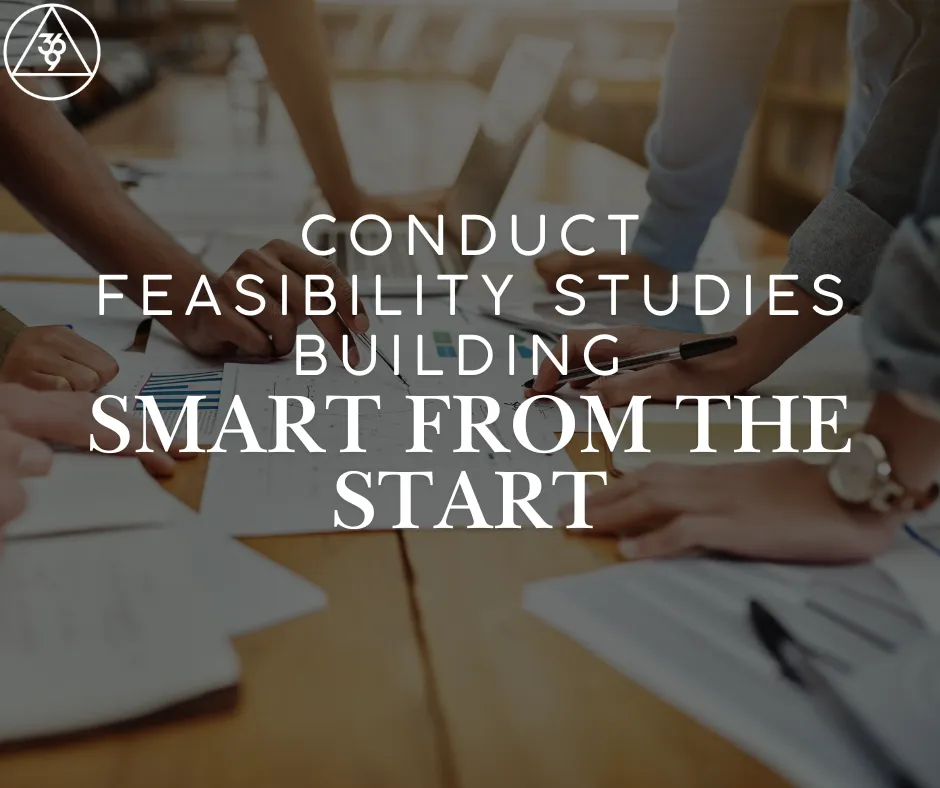
Conduct Feasibility Studies: Building Smart from the Start
Conduct Feasibility Studies: Building Smart from the Start
Imagine planning your dream home on a plot of land, only to find out halfway through the project that the ground isn’t stable or there’s no easy way to connect utilities. Sounds like a nightmare, right? That’s why feasibility studies are so important. They’re like detective work for your self-build, helping you uncover any potential problems before they become expensive mistakes.
Here’s everything you need to know to conduct a feasibility study and make smart decisions about your project.
What Are Feasibility Studies?
Feasibility studies are investigations to check if your dream home can actually be built on a specific plot. They look at everything from the land’s condition to the rules about what you can and can’t build there. Think of it as a reality check that helps you avoid surprises and saves you time, money, and stress.

Why Are Feasibility Studies Important?
Before you commit to a plot, you need to be sure:
It’s Suitable: The land is safe and practical for building.
It’s Legal: Your plans comply with local laws and regulations.
It’s Affordable: There won’t be hidden costs that blow your budget.
Skipping this step is like trying to bake a cake without checking if you have all the ingredients—it’s a recipe for disaster.
How to Conduct a Feasibility Study
Here’s a step-by-step guide to help you investigate like a pro:
1. Evaluate the Land
Start by checking the basics:
Is the ground stable? A soil test can reveal if it’s suitable for building.
Is the plot prone to flooding? Flood risk maps can help you find out.
Are there any physical obstacles, like trees or uneven terrain, that could complicate the build?
2. Check Utilities and Access
Can the plot connect to essential services like water, electricity, and sewage? How easy is it to build an access road if one isn’t already in place?
3. Review Local Planning Policies
Some areas have strict rules about what you can build. Check with your local council to see:
What types of buildings are allowed.
If there are height restrictions or design requirements.
Whether the plot is in a protected area, like a greenbelt.
4. Investigate Hidden Costs
Look for costs you might not expect, like:
Groundwork for sloping plots.
Installing utility connections.
Clearing trees or demolishing existing structures.
5. Consult the Experts
Hiring professionals like surveyors, architects, and engineers can help you get a detailed assessment. They’ll spot issues you might miss and give you advice on how to solve them.
6. Understand Legal Restrictions
Some plots come with legal restrictions, like rights of way (paths people are allowed to cross) or easements (allowing utilities to run through your land). These can affect how you use the land.
7. Plan for the Future
Think about how the land will work for you long-term. For example:
Is there room for expansion if you need it?
Will it meet your needs as your family grows or changes?
Common Mistakes to Avoid
Skipping the Experts: DIY assessments can miss major issues.
Ignoring Planning Policies: Assuming you can build anything can lead to expensive setbacks.
Underestimating Costs: Failing to account for hidden expenses can blow your budget.

How We Can Help
At 369 CUG, we specialise in guiding self-builders through the feasibility process. From connecting you with expert surveyors to helping you navigate planning policies, we’ll ensure your plot is a perfect match for your vision. Our approach saves you time, money, and potential headaches.
A Strong Start to Your Dream Build
Conducting feasibility studies might not be the most glamorous part of self-building, but it’s one of the smartest things you can do. With a little investigation and the right support, you’ll set yourself up for success before the first brick is even laid.
Need help getting started? Visit the Self-Build Mastery page on our website to access expert advice and tools for your feasibility studies and beyond.
